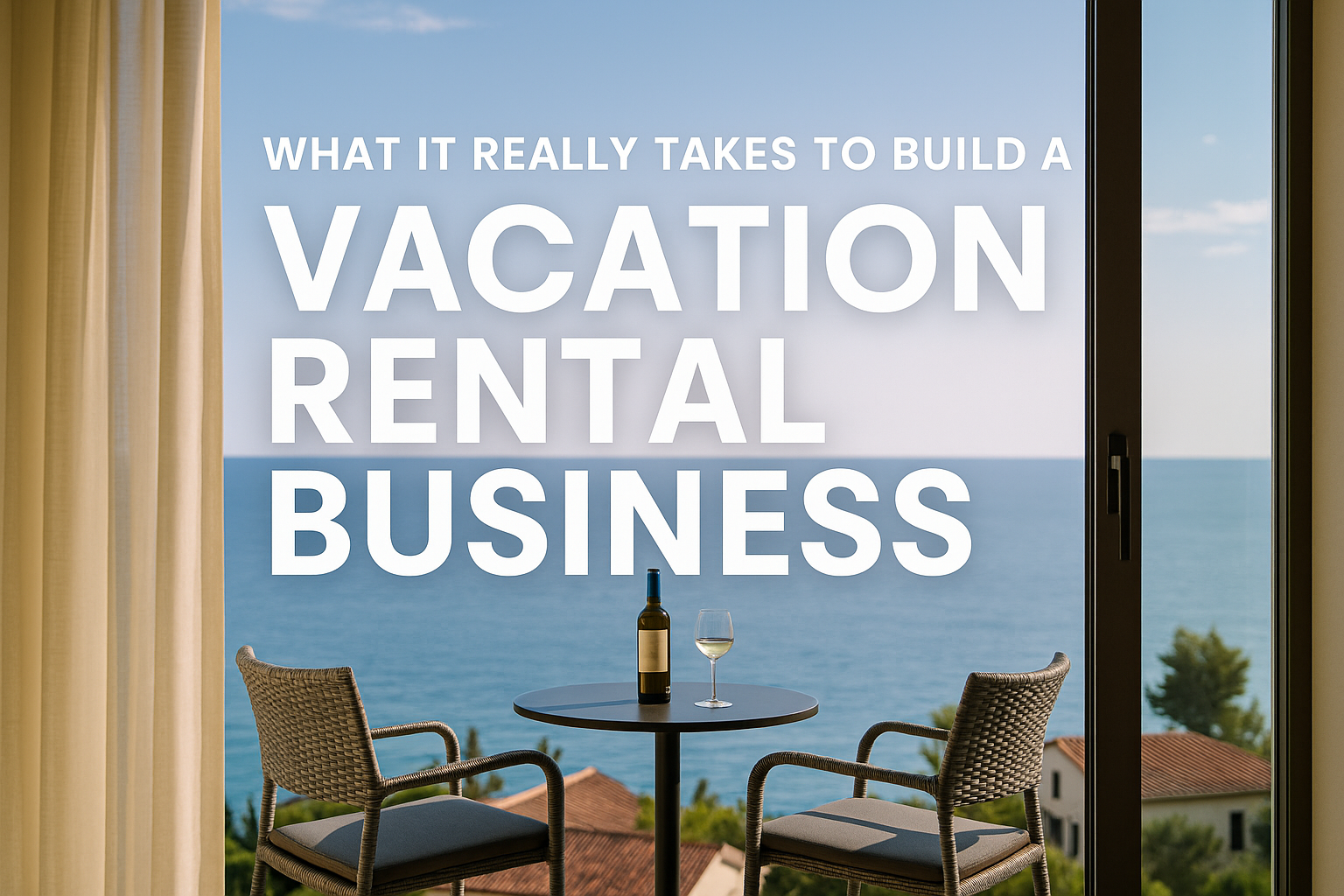Cue the wine glass, the sunset, and wondering to yourself, “What if we owned a place like this?”
It’s become something of a vacation tradition in my household, usually uttered somewhere between a gorgeous view and the second pour. And while it’s easy to romanticize the idea—owning a little slice of paradise in the Caribbean or a little shack in the Colorado mountains that pays for itself—the reality is a bit more layered.
Thanks to platforms like Airbnb and Vrbo, the notion of turning a cozy cabin or beachside condo into a revenue-generating retreat has never felt more accessible. It’s not just real estate tycoons building portfolios now; it’s regular people, inspired by the idea of mixing lifestyle and income in one tidy investment. And in some cases, it works. With the right plan, location, and mindset, a vacation rental can offer both a financial return and the kind of personal joy that no stock ticker ever will.
But if you’re thinking “passive income,” you might want to underline the word income and put a few question marks around passive.
Unless you’re handing off the entire operation to a full-service property manager (and sacrificing a healthy slice of your profits in the process), running a short-term rental is anything but hands-off. It’s hospitality, plain and simple. Think cleaning schedules, guest communication, booking calendars, price optimization, maintenance, last-minute fixes—and that’s before you even get into marketing, reviews, or regulatory compliance.
Some cities have made the process relatively seamless.
Others? Not so much.
Permits, caps on rental nights, new taxes—local governments are increasingly clamping down on the short-term rental surge. You’ll want to get intimately familiar with your destination’s rules before falling in love with that charming fixer-upper near the lake.
Then there’s seasonality, the quiet dealbreaker most people don’t account for. Vacation towns are, by definition, seasonal. That dreamy Cape Cod cottage might be booked solid in July and August but sit empty in January. A ski chalet might thrive in the winter only to collect dust in the spring. You need to understand your destination’s rhythms—when the crowds come, when they vanish, and what kind of income you can reasonably expect to carry you through the ebb and flow.
Before diving in, ask yourself some practical—but essential—questions:
Market’s Seasonal Demand
- When is peak season—and how long does it actually last?
- What happens to demand (and pricing) in the off-season?
- Is the area year-round desirable, or does it hinge on a single event or climate window?
- Are there shoulder seasons where occupancy dips but doesn’t disappear?
Margins and Financial Planning
- Can peak-season income cover year-round expenses?
- How many booked nights per year do you need just to break even?
- What’s your plan for slow months? Do you have reserves or a secondary income stream?
- Are you budgeting for seasonal marketing to boost visibility in the off-season?
Location-Specific Factors
- What are similar properties charging in high vs. low seasons?
- Are there local restrictions or caps on short-term rentals at certain times of year?
- Does weather have a meaningful impact on demand or travel patterns?
- Will the property need special care (like winterizing) during off-peak months?
Your Target Guests
- Who visits this area—and when? Families in summer? Digital nomads in fall?
- Can you shift your offering to attract off-season guests (e.g., “remote work retreat,” “holiday hideaway”)?
- Are there festivals or community events that could bring traffic in the slower months?
Risk and Resilience
- Are you financially prepared for uneven income?
- Do you have a pricing strategy that adjusts dynamically with market changes?
- Would a hybrid approach—short-term in peak season, mid-term during off months—be a better long-term play?
Of course then there’s the financing side, which is its own beast.
Lenders treat vacation rentals differently than primary homes or long-term investments. Expect higher down payments, less favorable interest rates, and closer scrutiny of your credit profile. Some lenders may even ask for documented rental income potential—tricky, if the property is new to the market or hasn’t been rented before.
Insurance is another critical detail. A standard homeowner’s policy likely won’t cut it. Vacation rentals come with unique exposures—guest liability, wear and tear, longer vacancy periods. You’ll need a short-term rental policy tailored to those risks. Airbnb’s $3 million in damage protection and $1 million in liability coverage can be helpful—but it’s no substitute for full, private coverage that protects you.
And still—despite all the fine print and spreadsheets—there’s something irresistible about it.
A well-chosen vacation rental can create income, build equity, and offer something far more personal: a connection to a place you love. Unlike stocks or crypto, it’s tangible. You can walk through it. You can fill it with memories. You can hand your keys to friends or unplug with your family. That lifestyle element, while hard to quantify, carries real weight.
The trick is going in like an owner and an operator!
The most successful hosts are those who see this as a business, not just a dream. They track numbers. Stay nimble. Invest in the guest experience. Keep up with policy changes and adapt when markets shift. They don’t outsource judgment.
One of the smartest ways to prepare? Stay at a few vacation rentals before you buy one. Take note of what delights you and what disappoints you. Observe how the host handles the check-in, the communication, the small gestures. The best education might be hiding in a welcome basket or a perfectly worded message.
Owning a vacation rental isn’t a one-size-fits-all move. It’s part financial strategy, part lifestyle design, and part emotional pull. If you’re informed, prepared, and realistic, it can be incredibly rewarding—on more levels than one.
So next time you’re staring out at that view, wine in hand, and wondering “What if we owned a place like this?”—follow it up with a better question:
What would it really take to make this work?





